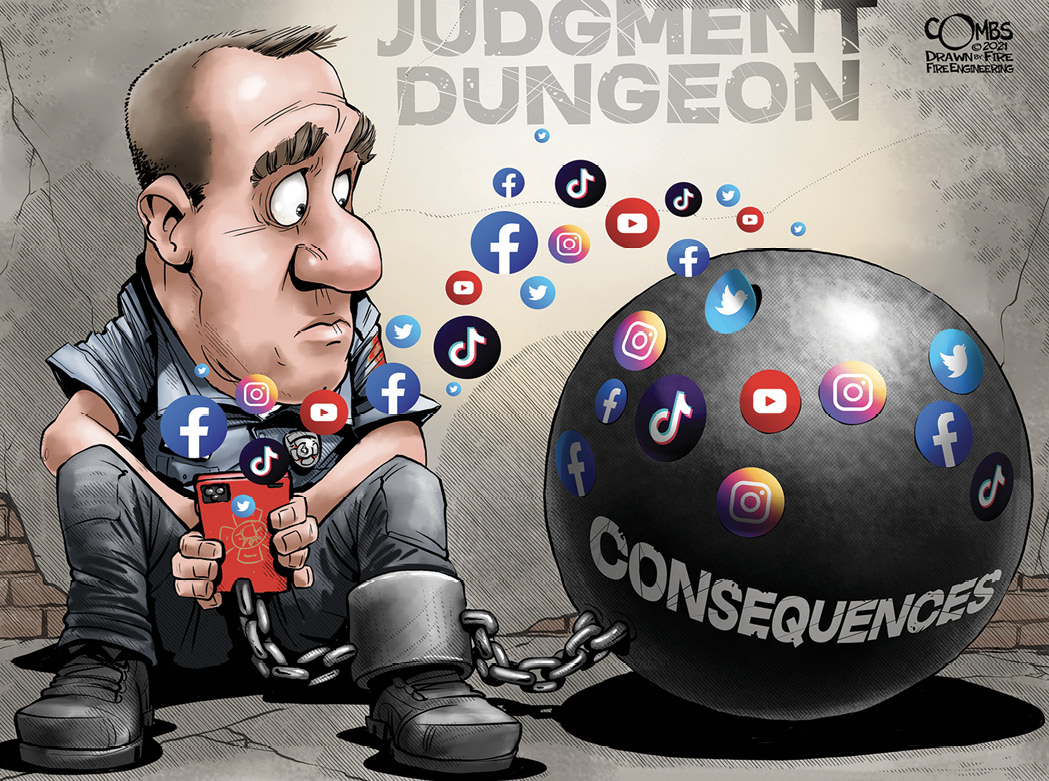How to Tell Them
We were dispatched for a missing elderly man last seen fishing on the banks of the Great Miami River (this was some years ago). All we found was a tipped-over lawn chair and some fishing tackle. No one was around to have seen anything. We obtained his health history from his family, who were on the scene looking for him because he was late coming home. We began search operations, boat and land based along the river; alerted downstream communities; and kept our fingers crossed.
Day was turning into night. We were and still are a small department without resources to sustain an effort like this for long and still answer our normal call load. All this came rushing back to me as I followed reports of the ongoing Champlain Tower collapse, with my crew (Ohio Task Force 1) on scene.
During conversations with some of my Florida colleagues, the issue of how to keep surviving family members informed came up. The job of the public information officer (PIO) is not only to deliver information to the public/press but also to educate. In Florida, as well in Ohio with the lost man on the river, the family wanted to know what was being done, what was next, and how the fire department was addressing it. In the case of the collapse, the families wanted to know why they didn’t see more firefighters on the pile and why progress was slow (to them)—good questions from concerned folks who just want to see their loved ones again.
Back at the river, we had been searching for hours without a positive result. During this time, we had been relying heavily on mutual aid (increased response times) to help with 911 calls. Dark was coming, and the family wanted to know what we were planning. It fell to me to meet with them. I asked them to join me in the back of a medic unit where we could sit facing each other in private. I explained what we had done so far and how far we had searched. I explained that if the subject had fallen into the river and perished, then within a couple of days he would likely float to the surface. I did not go into detail about water temperature and body off-gassing, probability of detection models, and so on, but we had a good idea from our history with bodies in this river.
Of course, this was not good news to the family; what they wanted from us was to continue river operations and bring their loved one home safe. What I tried to explain to them was that we searched/dragged the areas with the highest possibility of success and expanding that area also brought diminishing chances of finding their loved one. Given that, and with dark coming on, I had a serious risk-benefit decision to make—I, along with our police department, who was conducting “Rest of the World” search, calling on old friends of the subject, hospitals, other places he might go, and so on—whether to end river operations and continue to pursue these other possibilities. I was not willing to keep crews on the water just for the visual of having crews there working.
I also called local kayaker and boating clubs to be on the lookout for this gentleman should he turn up. None of this is what the surviving family members wanted to hear. For me, it was a tactical decision. For them, and rightly so, it was another step toward accepting their loved one was lost. I was doing my best to logically explain this plan, using our limited resources to search where the subject might be found alive rather than continue a low probability of success search on/under the water in the dark. This did not bring any comfort to the family of the missing man.
So, despite these efforts, it was not enough for the family, and they let the press know. Our team worked as objectively as they could, trying to balance chances for success vs. incoming calls (people we could help) and the safety of my crews working a river in the dark. The family understandably could not see or (at the time) understand why we couldn’t stay working. I did not press to garner this understanding; I could only hope that perhaps some day they would look back on that moment and maybe have a different point of view.
How fortunate we are now to have the depth of trained resources properly equipped and organized to sustain operations even in the face of such diminishing chances of a rescue.
If your local community has not developed multijurisdictional strike teams, state mutual-aid agreements, and local mutual-aid agreements with neighbors, then it is something you need to work on. Draft and implement policy to help guide field commanders to make sure they are supporting and working toward goals the fire department and local government can defend. Use your PIO to educate not only the public at large but also family members.
Within a couple of days, the missing fisherman floated to the surface about a quarter-mile downstream, found by a local kayak club. We came back and extricated the body as the family looked on; no words were exchanged between us. I don’t know what they were feeling, but all of us felt that somehow we had let them down. As the responders in Florida made tough choices and sustained their search and recovery operations, we needed to support not only them but the surviving loved ones.
Steve Shupert
Lieutenant
Miami Valley (OH) Fire District


